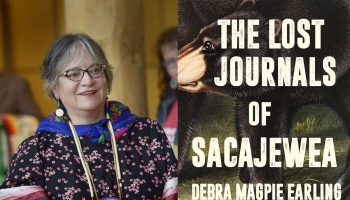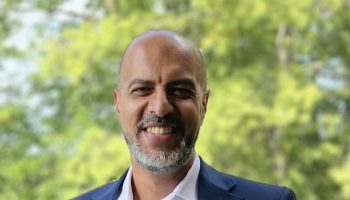
Kaitlyn Finchler
Contributing Writer
When people think about antisemitism, they often think of it in a broad sense of hatred or prejudice against Jewish people. However, there are different branches of antisemitism that stem from various religious or nonreligious groups.
To explore this, Brendan Murphy, founding director of the Bearing Witness Institute for Interreligious and Ecumenical Dialogue at Marist College, will deliver his lecture “From Ancient Prejudices to Modern Challenges: Exploring Historical and Contemporary Relations Between Christian and Jewish Communities” at 2 p.m. today in the Hall of Philosophy for the Week Six Interfaith Lecture Series theme
“Religion’s Role in Conflict and Extremism.”
“I am an educator of some 30 years, and my main work is in Holocaust education,” Murphy said. “One of the great emphases that I bring to that class, that is taught at a Catholic school, is we do a deep dive into the long and tragic history of Christian antisemitism — or what’s often called antisemitism.”
Antisemitism is “really not a history that’s often being taught” in schools, parishes or communities, he said.
“Your average Christian — be they Catholic or Presbyterian or Methodist — knows very little of that history in the way by which Christian antisemitism had laid the groundwork for modern, racial, genocidal antisemitism,” Murphy said.
This led Murphy to develop a national lecture series meant not only to tell the story of the history of Christian antisemitism, but to talk directly about the “extraordinary work” done with Christian and Jewish leaders around the world, he said.
“That work is so inspiring. It’s so important,” Murphy said. “But, it’s also gone unknown by your average Christian, so to speak. I drew up this lecture series that delves into these two areas, and I’ve been delivering that all over the country.”
Murphy started the Bearing Witness Institute in August 2024 to provide the “needed professional structure, not to mention funding,” to promote the lecture series, as well as other aspects of its work across the country, he said.
A second initiative of the Bearing Witness Institute is to train teachers on not only how to teach Holocaust history, but how to teach the history of Christian antisemitism, he said.
Prior to his lecture at Chautauqua, Murphy said he partnered with The Olga Lengyel Institute for Holocaust Studies and Human Rights in New York to offer workshops for teachers in Catholic schools.
“I know the executive director very well and asked if they would be willing to partner with the Bearing Witness Institute to build a unique version of their seminar model,” he said. “Essentially, their seminars that they run are exclusively about the Holocaust, but I wanted to bring in elements of the history of Christian antisemitism and develop a workshop specifically for teachers in Catholic schools.”
Christian antisemitism and antisemitism as a whole are directly connected, Murphy said.
“I’m really speaking about antisemitism with a special focus on a particular aspect of its history,” he said. “So, (the lecture) is directly about antisemitism.”
Simply put, Murphy said Christian antisemitism led to modern antisemitism.
“The hope is that the story I’m telling might instill in the hearts and minds of attendees a sensitivity towards this particular, and so deeply entrenched, prejudice — antisemitism, that is,” he said. “So, when (attendees) encounter or hear about antisemitism in their communities, incidents of hate towards Jews, they would feel more inclined to respond.”




